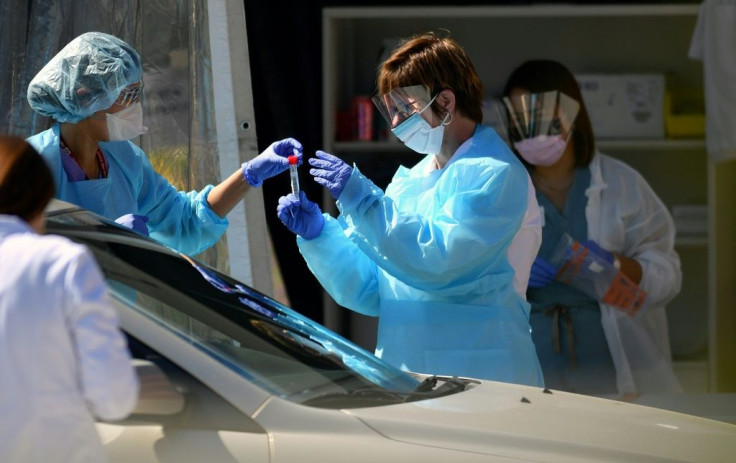Rutgers Researcher, Who Developed First COVID-19 Saliva Test, Dies
KEY POINTS
- Professor and researcher Andrew Brooks died of a heart attack
- The saliva test he developed was granted emergency approval by the FDA in April 2020
- New Jersey Gov. Phil Murphy called Brooks "one of our state's unsung heroes"
Andrew Brooks, a research professor at Rutgers University who led the development of the first COVID-19 saliva-based test, died on Jan. 23 at the age of 51. The cause of death was a heart attack, his sister Janet Green told CNN.
In April last year, the Food and Drug Administration gave emergency approval to the saliva test developed by RUCDR Infinite Biologic, a unit of the university's Human Genetics Institute of New Jersey. Brooks, who was RUCDR's chief operating officer and director of technology, said at the time that the impact of the approval was significant. A month later, authorization arrived for the first at-home COVID-19 test that used saliva samples.
Since then, more than 4 million rapid response tests using Brooks’ technique have been performed, Rutgers said in a statement.
New Jersey Gov. Phil Murphy called him "one of our state's unsung heroes" and tweeted:
Deeply saddened by the passing of Dr. Andrew Brooks, a @RutgersU Research Professor in the Department of Genetics.
— Governor Phil Murphy (@GovMurphy) January 25, 2021
In the early days of the pandemic, he led the development of the Rutgers #COVID19 diagnostic assay.
We cannot thank Andy enough for all he did across his career. pic.twitter.com/S6xI52iurS
Last year, Brooks had said that the FDA approval for his test meant “we no longer have to put health care professionals at risk for infection by performing nasopharyngeal or oropharyngeal collections.”
“We can significantly increase the number of people tested each and every day as self-collection of saliva is more quick and scalable than swab collections,” he continued. “All of this combined will have a tremendous impact on testing in New Jersey and across the United States.”
He also explained how the test works. “You simply have to spit into a tube,” he told Bill Hemmer during a Fox News interview. “With some spit in a tube you cap that tube and a preservation agent preserves the nucleic acid from the virus, allowing us to safely transport it to the lab. And off you go to testing.”
Brooks' team presented data that demonstrated viral shedding into saliva can provide plenty of material to be able to do this analysis.
After the FDA approval, Brooks had another task at hand. The research professor needed more equipment and staff to produce the tests and process the results, The New York Times reported. That problem was solved after the White House offered help and a multimillion-dollar loan arranged by Dr. Jay Tischfield, a Rutgers professor and the founder and CEO of RUCDR.
In August, a test called “SalivaDirect,” developed by researchers at the Yale School of Public Health, was also granted emergency use authorization by the FDA

© Copyright IBTimes 2024. All rights reserved.





















